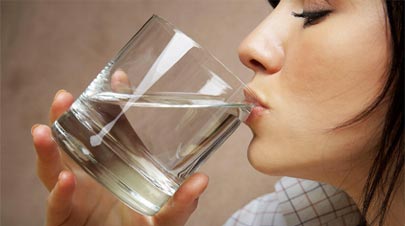It is very normal for people to occasionally have a dry mouth, this can be caused by dehydration, anxiety and a whole host of other problems. If you have a persistently dry mouth then it may have an underlying cause which needs further investigation, your dentist may be able to help.
What are the causes of a dry mouth?
A dry mouth is caused by underactive salivary glands which are not producing enough saliva to keep your mouth wet. This could either be because you don’t have enough water in your system and you are dehydrated or due to a medical reason causing the salivary or parotid gland not to work as they should.
A few of the causes of dry mouth are:
- Medication. Some antidepressants and antihistamines can cause your mouth to dry out if you are taking either of these medications take a quick look at the instructions and see if a side-effect is a dry mouth. Never stop taking prescribed medicines until you have spoken to your doctor about any potential side-effect.
- A common cold. If you have a cold and your nose is blocked it can cause you to breathe excessively through your mouth, this can dehydrate your mouth, particularly whilst you are asleep.
- Medical conditions. There are a couple of medical conditions including diabetes and Sjogren’s syndrome which cause dry mouth.
What problems can dry mouth cause?
Dry lips are very often associated with a dry mouth, as is halitosis. The saliva in your mouth keeps bacteria at bay, without the saliva the bacteria multiply and cause the bad breath.
Tooth decay and gum disease are also associated with a dry mouth. If they are not bathed in the saliva then the bacteria which secrete the acid are not neutralised, the acid can then become stronger and cause decay in your teeth faster than normal.
Dry mouth can be a particular problem if you have a removable dental appliance such as an orthodontic brace or a denture. If you have such an appliance then a dry mouth can cause halitosis (bad breath), these appliances seem to be particularly prone to drying out and becoming smelly, the bacteria if they are dry, we recommend you follow some of the procedures below to overcome this particular issue.
We have found a free guide to wearing braces which includes some useful information about this issue, you can download it here.
How to treat a dry mouth
Before you know exactly how to treat a dry mouth you need to understand what is causing it. If you believe you are fully hydrated then medical assistance may be required, either from your doctor or dentist.
Some things you could try include:
- Staying hydrated by drinking as much water as you need per day.
- Stopping smoking.
- Limiting the amount of caffeine you drink as this can dehydrate you.
- Chewing gum to stimulate the flow of saliva, make sure this gum is sugarfree to avoid tooth decay.
- Visit a pharmacy and ask for some over-the-counter saliva substitute.
- Try to breathe through your nose rather than your mouth.
- Use a room humidifier at night if you think you may be mouth breathing.
Preventing tooth decay due to a dry mouth
One of the big problems of a dry mouth is maintaining good oral hygiene to prevent tooth decay. It is extremely important to regularly visit your hygienist and dentist if you have a dry mouth to ensure that your teeth and gums remain healthy.
Gum disease can progress painlessly on the whole and only a dental health professional will be able to tell in the early stages if you have either gingivitis or periodontitis.
The general rule of thumb for good teeth cleaning is:
- Start brushing your molars and then moved forwards towards the front of your mouth.
- Brush from your gums towards the chewing surface and use little strokes to get your teeth clean.
- Make sure to clean all your teeth. Hold your toothbrush up and down to get behind them.
- Remember to brush your tongue.
- Do all of this twice per day and use a fluoride mouthwash in between meals as a top up. Avoid using mouthwash after you brush as toothpaste has a higher percentage of fluoride than mouthwash, if you use a mouthwash immediately after brushing then you reduce the number of teeth strengthening fluoride around your teeth.






